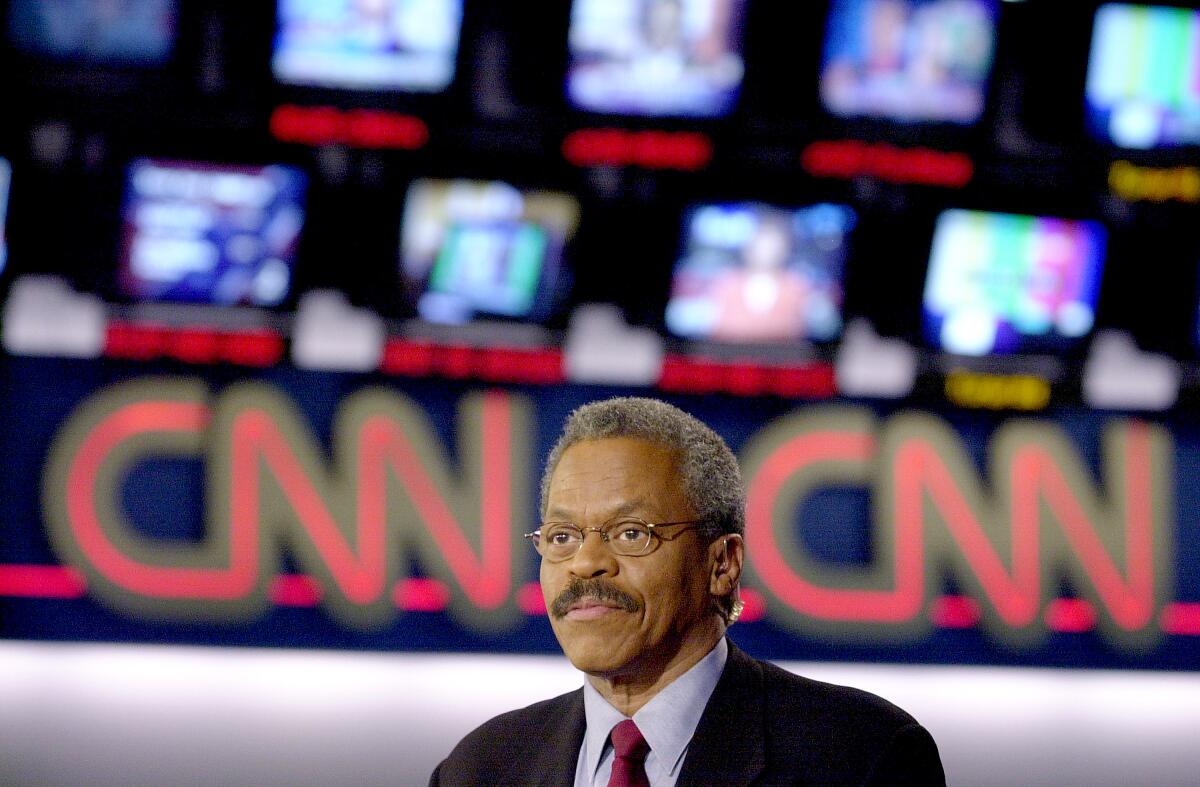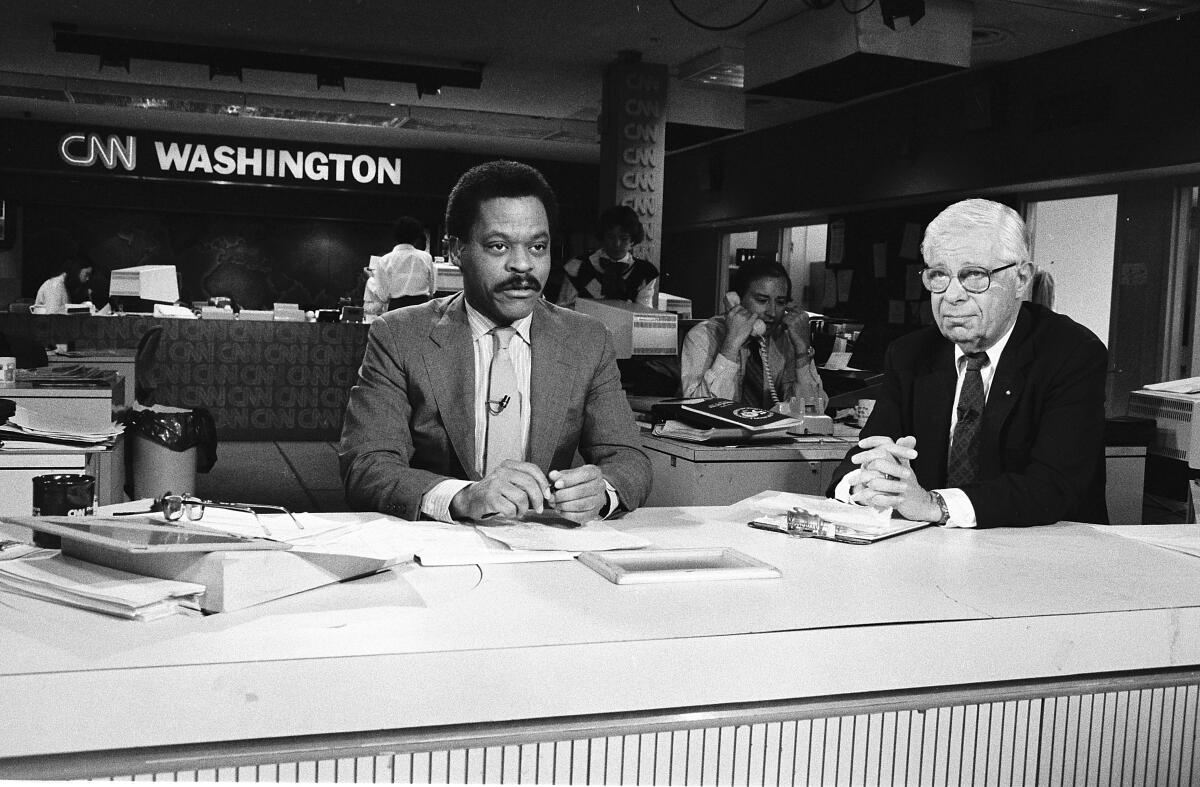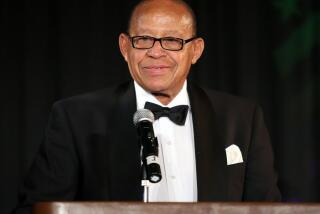Bernard Shaw, original CNN anchor and longtime contributor, dies at 82

Veteran newsman Bernard Shaw, CNN’s first chief anchor who was at the center of every major story covered by the network in its first two decades, has died. He was 82.
Shaw died Wednesday of pneumonia unrelated to COVID-19, his family said in a Thursday statement to CNN.
The journalist was one of the first Black network anchors and his career at CNN spanned the time between the assassination attempt on President Reagan and the 2000 election recount. Shaw remained at CNN until his contract expired in 2000, when he left to write his autobiography and spend more time with his family.

He returned to the channel over the years as a contributor and also appeared as himself in the 1997 Hollywood films “Contact” and “The Lost World: Jurassic Park.”
Television * The network’s high-profile African American will write book, spend time with family.
Shaw got his first break in journalism while serving in the Marine Corps in Hawaii, where he arranged a meeting with a visiting Walter Cronkite, then anchor of the “CBS Evening News.” After Shaw landed a radio job in his native Chicago — where he covered the Rev. Martin Luther King Jr.’s activities — Cronkite helped him get a position at CBS News.
Shaw was part of the team that covered the Watergate scandal for CBS News in Washington and jumped to ABC News in 1977. He was among the first reporters on the scene of the Jonestown massacre, in which more than 900 members of the Peoples Temple died in a mass poisoning in Guyana.
Shaw was hired by CNN founder Ted Turner to be the lead anchor of the network and was at the desk when it signed on in June 1980. His traditional broadcasting style and dignified demeanor gave the start-up credibility, trust and access in Washington.
“Bernie was Mr. Calm, Mr. Steady,” said his former co-anchor Judy Woodruff in a CNN interview. “He was never trying to get ahead of the story. He was not trying to say more than he knew.”
Shaw served up one of the most provocative questions in the history of presidential debates when he asked Democratic candidate Michael Dukakis: “If Kitty Dukakis was raped and murdered, would you favor an irrevocable death penalty for the killer?”
Dukakis’ coolly detached response reiterating his anti-death penalty stance was cited as a reason for his loss to George H.W. Bush in the 1988 election.
A year later, viewers watched Shaw as he dramatically signed off while Chinese government officials shut down the network’s live reporting of the student-led demonstrations from Tiananmen Square in 1989.
“I’m a child of democracy,” Shaw would later say in a CNN interview. “When we were shut down, my temples just froze with anger. I remember that night I went back to my hotel room and I actually cried.”
Shaw was among the three CNN journalists who reported live from Baghdad during the U.S. military’s initial attack during the first Gulf War in 1991. The coverage drew the network’s biggest ratings up to that time and elevated its position in the TV news landscape.
But Shaw later said he suffered post-traumatic stress disorder from his time in Baghdad. He also expressed regret over the time his CNN job took away from his family.
“You pay a price,” Shaw said. “I happen to believe it was a worthwhile price to pay, but you’re going to pay a price.”
Shaw is survived by his wife, Linda, a son, Amar Edgar, and a daughter, Anil Louise.
Shaw’s family said funeral services will be closed, with family and invited guests only. A public memorial service will be planned at a later time.
More to Read
The complete guide to home viewing
Get Screen Gab for everything about the TV shows and streaming movies everyone’s talking about.
You may occasionally receive promotional content from the Los Angeles Times.








